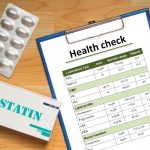
Put down that donut and lay off the pasta: New research finds you’re less sexy after gorging on refined carbs. French researchers presented heterosexual adults with photos of an opposite-sex person who two hours earlier had eaten a breakfast rich in refined carbohydrates. Participants rated the folks in the photos as less attractive compared to people who’d eaten a healthier breakfast. “Facial attractiveness, an important factor of social interactions, seems to be impacted by immediate and chronic refined carbohydrate consumption in men and women,” concluded a team led by Amandine Visine of the University of Montpelier. Her team published its findings March 6 in the journal PLOS One. According to the researchers, “refined” carbohydrate foods are ubiquitous in the Western diet, and include highly processed fare stripped of much of its nutritional value. White flour plus refined sugar are often ingredients, and many snacks are high in refined carbohydrates. According to a news release from the journal’s publisher, “preliminary evidence has suggested that consuming high levels of refined carbohydrates might also affect non-medical traits, such as a person’s attractiveness.” To investigate further, the French team recruited 104 white male and female adults. Some were told to eat a high-glycemic breakfast loaded with refined carbs that are known to boost blood sugar levels. Others ate a low-glycemic breakfast that avoided refined carbs. All of the participants… read on > read on >





























-300x200.jpg)







-300x169.jpg)
